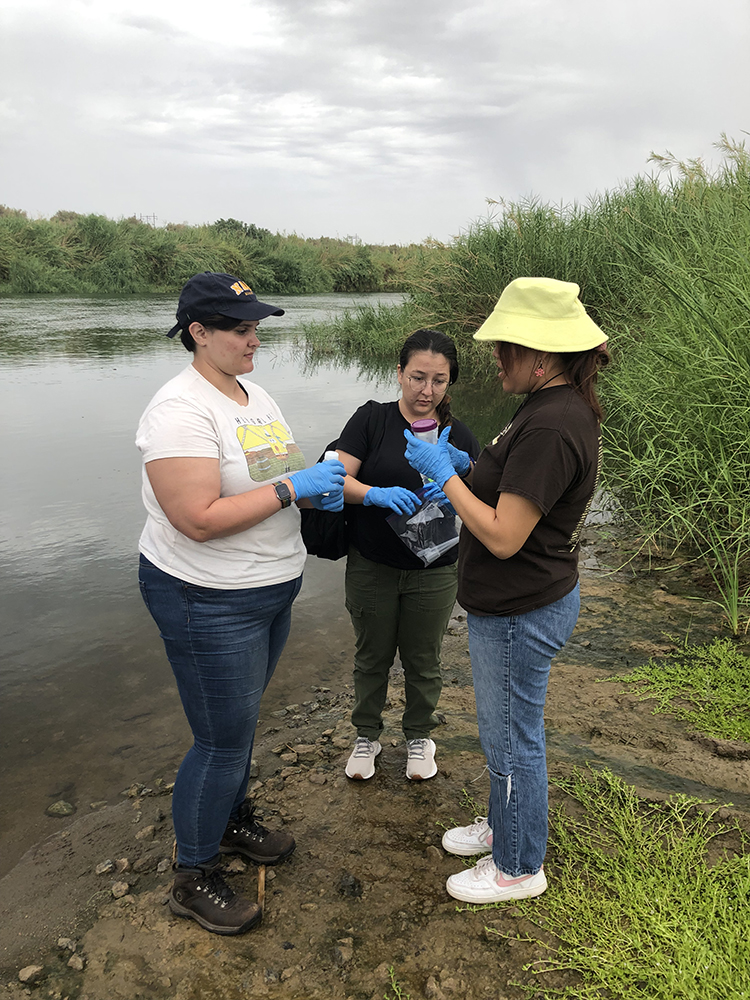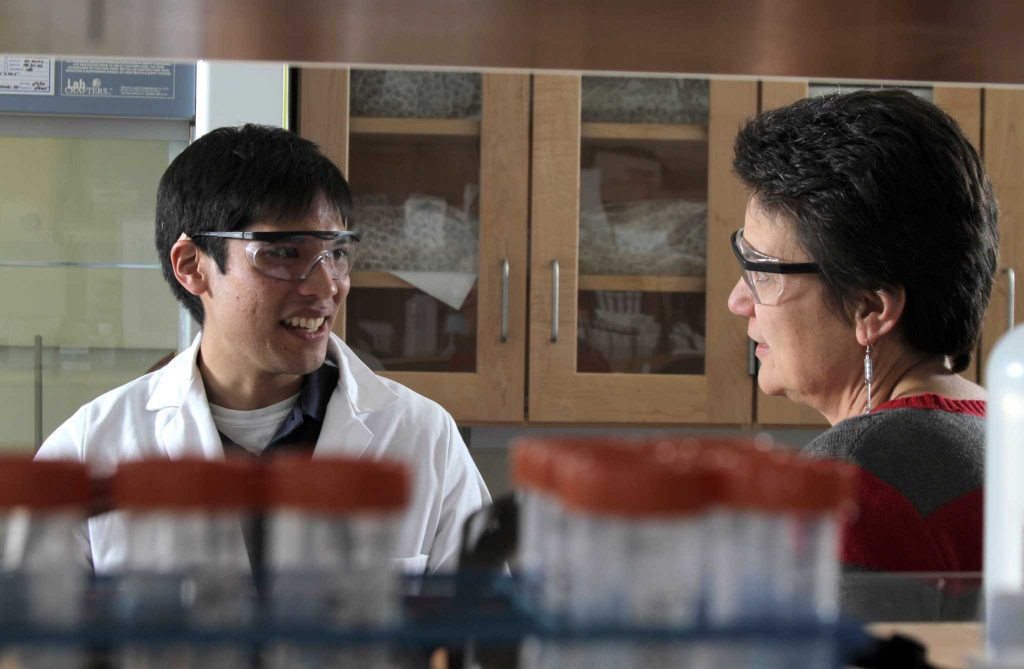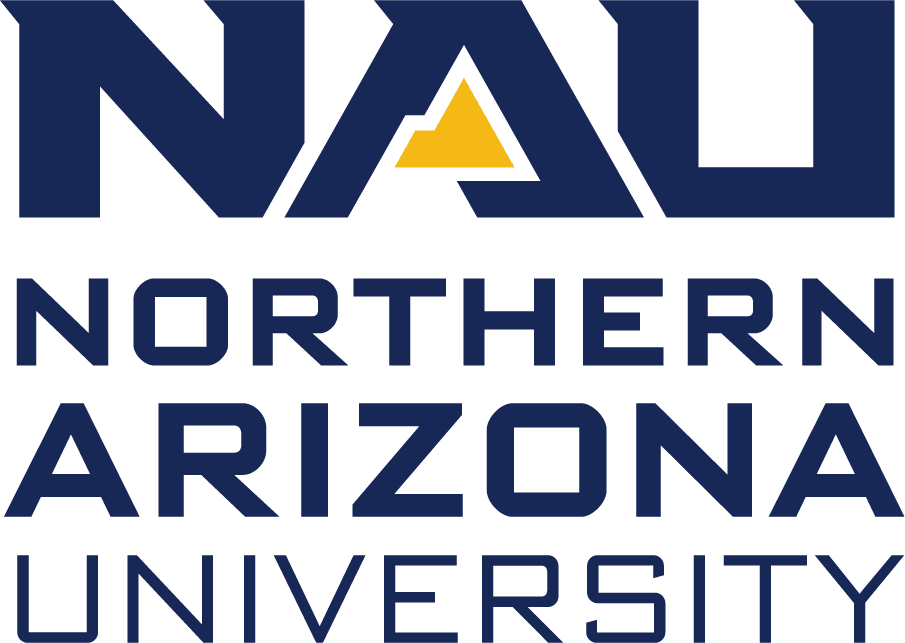Regents’ professor Jani Ingram of Northern Arizona University’s Department of Chemistry and Biochemistry was recently awarded a $200,000 grant from the Environmental Protection Agency (EPA) to lead an assessment of the air and water quality at the Cocopah Tribal Head Start and Day Care.
The Cocopah Indian Tribe, also known as the River People, have lived along the lower Colorado River and delta for centuries, maintaining their traditional and cultural beliefs throughout many political and environmental changes. About 1,000 tribal members live and work on or near the Cocopah Reservation, comprising 6,500 acres located 13 miles south of Yuma, near the borders of Arizona, California and Mexico.
The tribe faces several environmental issues. Much of the Cocopah Reservation is leased as agricultural land to non-Indigenous farmers, and contamination from agricultural pesticides is a concern for them as it is for many people who live in farming communities throughout Arizona. Other issues result from trash being burned in nearby Los Algodones, Mexico, which affects their air quality.
The tribe operates a day care center and a Head Start program in Somerton, Arizona, providing educational and cultural lessons and activities for Cocopah children. Ingram’s project will help determine the air and water quality at the facilities; build capacity for Cocopah’s air and water monitoring programs; and work to increase local community awareness of environmental exposure issues and their associated health effects, particularly for children.
Although the focus of this two-year project is measuring water quality and air quality at these two buildings, the team is looking at issues across the reservation. Professor Fernando Monroy of NAU’s Department of Biological Sciences also will be investigating the microbial content of the water.
Providing opportunities for student research and personal growth
Ingram, an analytical chemist who studies environmental contaminants with respect to their impact on health, took on this project after some preliminary investigation funded through a mini-grant from NAU’s Center for Health Equity Research (CHER) and a summer internship sponsored by NAU’s Institute for Tribal Environmental Professionals (ITEP). “I was drawn to this because helping the Cocopah Tribe is important work,” she said.
Ingram is a member of the Navajo Nation (born to the Náneesht’ ézhi clan). Many of her projects involve mentoring Native American students in undergraduate and graduate research. The project will provide opportunities for students to conduct research in the field, work with tribal representatives and analyze samples in Ingram’s lab. The team is comprised of several students, including Jenessa Arviso, who also is Navajo and enrolled in NAU’s Accelerated B.S./M.S. in Chemistry program. Arviso will work directly with Ingram on field and laboratory work, and the research will be the focus of her master’s thesis.
“Not only is this project allowing me the opportunity to gain hands-on experience, but it also gives me the chance to help communities similar to my own,” Arviso said. “In order to ensure that future generations have the opportunity for a healthy and safe environment to nurture and grow, it is with great urgency that we address this matter and use all available resources and knowledge.”
In her experience working with several different Native communities in the region, Ingram has found that giving these opportunities to her students results in personal growth.
“Native students tend to be leaders when it comes to working in the field, but non-Native students also learn a lot by interacting with tribal communities,” Ingram said. “It works well when the Native students are the ones leading the way, and it’s also really cool for them because sometimes they’re a little more intimidated in the lab. And so now they’re the ones that are the leaders and the other students who may be more comfortable in the lab are there to help.”
Building trust through collaborations
Another critical aspect of Ingram’s research is fostering collaborations with Native communities and leaders to build trust, obtain access to field samples and gain insights into their health concerns. She builds interdisciplinary, collaborative teams of scientists with expertise in fields including analytical chemistry, geoscience, cancer biology and social sciences.

Another key collaborator is Jonathan Credo, who is a medical school student at The University of Arizona. Credo, an NAU alumnus who trained with Ingram, was instrumental in building the relationship with the Cocopah Tribe and collecting much of the preliminary data for the grant proposal. As co-PI on this project, he is working directly with the tribe in setting up the water and air sample collection as well as with Ingram and her students on collecting data and interpreting the results.
“It has been exciting to see how this collaboration with the Cocopah Tribe has grown over the years,” Credo said. “I remember first approaching the Cocopah Tribal Administration in 2018-19 while working on my Ph.D. and conducting field work in the area. I am appreciative of the trust this grant symbolizes from the years of collaboration with the Cocopah community. Their people’s first-hand accounts of the region, as well as my experiences conducting field work and working with patients during my clinical rotations, truly demonstrated to me the importance of this work.”
The team, many of whom have met with tribal leadership over the past few years, launched this project by meeting with tribal leadership in June, which was focused on a listening session with representatives of the Cocopah Tribe. They also met with the EPA.
“This project and partnership with NAU are meaningful because it connects us with the researchers who can help us answer the questions and concerns we have due to the environment we’re in,” said Jen Alspach, the Cocopah representative working with the team. “I’ve appreciated the time and efforts Dr. Ingram and her team have offered in the past couple years. This has involved visiting Cocopah and listening to both tribal leadership and community members to really understand the concerns of the tribe.”
The team will be collecting samples on a quarterly basis for the next two years to determine environmental quality at the Head Start and daycare facilities.
“I’m excited to see our findings,” Ingram said. “If the results of the air and water tests are defendable, they can help the Cocopah moving forward to address the issues. If there’s a problem, our data needs to be pretty clear. So that’s what we’ll be looking at over the next two years. The data will give us a pretty accurate reflection of what’s going on.”
Team to help provide training, build capacity and inform community
Ultimately, the project team will help build capacity for tribal professionals to establish their own air and water monitoring programs by training the staff of the Cocopah Tribe Environmental Protection Office in field collection methods. Ingram’s team also will train Cocopah Day Care, Head Start and K-12 staff on protecting children’s health from air and water hazards.
Kerry Bennett | University Marketing




